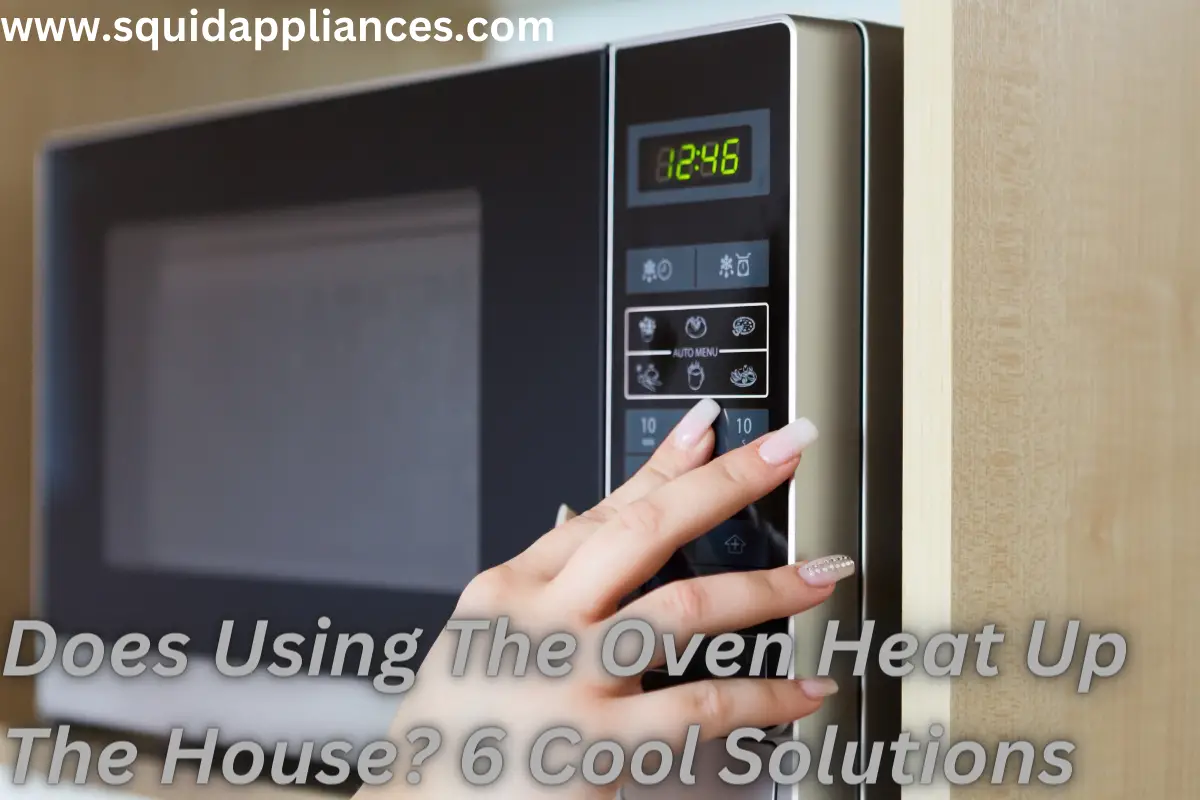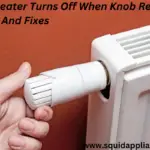Does using the oven heat up the house? If you’re like me and dread turning on the oven during hot summer months, I have good news for you. There are actually several cool solutions to keep your house comfortable while still enjoying home-cooked meals.
In this article, I will share six practical and easy-to-implement strategies to minimize heat buildup in your kitchen.
Firstly, we will explore alternative cooking methods that don’t require an oven, such as stovetop cooking or using small appliances like slow cookers or toaster ovens.
Secondly, we will discuss utilizing outdoor cooking options such as grilling or using a portable electric cooktop outside. These methods not only prevent heat from spreading indoors but also add a fun twist to your culinary experience.
Next, we will delve into maximizing ventilation in the kitchen by opening windows, using fans, or installing a range hood. Proper airflow helps dissipate heat and keeps your kitchen cool.
Additionally, choosing heat-resistant cookware and utensils can help minimize residual heat transfer and reduce overall temperature in the kitchen.
Lastly, timing and planning meals strategically can make a significant difference in keeping your house cool. By cooking early in the morning or late at night when temperatures are lower, you can avoid peak daytime heat.
With these six cool solutions at hand, you no longer have to worry about heating up your house when using the oven. Let’s dive into each strategy so you can start enjoying delicious homemade meals without breaking a sweat!
Does Using The Oven Heat Up The House?
“Yes, but solutions exist to minimize heat buildup. Consider alternative cooking methods like slow cookers or grilling outdoors. Maximize ventilation with fans and range hoods. Opt for heat-resistant cookware and strategic meal planning to keep the house cool while enjoying homemade meals without heating up the kitchen.”
Key Takeaways
- Use alternative cooking methods such as stovetop cooking, slow cookers, toaster ovens to avoid heating up the house.
- Consider outdoor cooking options like grilling or using a portable electric cooktop to keep the heat outside.
- Maximize ventilation by opening windows, using fans, or installing a range hood to help remove hot air from the kitchen.
- Choose heat-resistant cookware and utensils to prevent unnecessary heat transfer and keep the kitchen cooler.
Alternative Cooking Methods
Looking for alternative cooking methods that won’t heat up the house? Look no further, we’ve got six cool solutions for you.
When it comes to avoiding a hot kitchen, slow cooking is your best friend. Throw ingredients in a crockpot or slow cooker and let them simmer all day without raising the temperature.
Another option is microwave cooking, which uses less energy and produces minimal heat compared to traditional oven baking.
Utilizing Outdoor Cooking Options
Try grilling or using a fire pit to cook your meals outside and keep your home cool. Grilling is a great option for outdoor cooking because it allows you to cook a variety of foods quickly and easily. Make sure to preheat the grill before cooking and use direct or indirect heat depending on the food you’re preparing.
Another option is solar cooking, which uses the sun’s energy to cook your food. It’s an eco-friendly way to enjoy delicious meals while keeping your house cool.
Maximizing Ventilation in the Kitchen
To create a comfortable and refreshing cooking environment, it’s essential to maximize ventilation in the kitchen. Proper kitchen ventilation helps remove smoke, odors, and excess heat generated by cooking.
Start by opening windows or using exhaust fans to facilitate air circulation. Install a range hood above the stove to capture and remove airborne pollutants. Consider adding ceiling fans or portable fans to further enhance air movement.
By improving kitchen ventilation, you can keep your space cool and enjoyable while using the oven.
Using Heat-Resistant Cookware and Utensils
Investing in heat-resistant cookware and utensils is crucial in ensuring the safety and efficiency of your cooking experience. Heat-resistant materials, such as silicone, stainless steel, or cast iron, can withstand high temperatures without melting or warping. They also prevent hot spots and ensure even heat distribution for better cooking results.
Additionally, proper oven insulation helps retain heat within the oven, reducing energy waste and preventing excessive heating of your kitchen.
Timing and Planning Meals Strategically
Maximize the deliciousness of your meals by strategically planning and timing them to perfection. Strategic meal prep isn’t just about saving time, but also about minimizing energy consumption.
Start by choosing recipes that require less oven time or can be cooked on the stovetop instead. Plan your meals in a way that allows you to use residual heat from previous dishes, reducing the need for additional heating.
By being mindful of timing and planning, you can achieve energy-efficient cooking while still enjoying mouthwatering meals.
Frequently Asked Questions
How can I reduce the heat generated by the oven while cooking?
To reduce the heat generated by the oven while cooking, I can use ways to insulate the kitchen like closing windows and using curtains. Additionally, using cooking utensils like baking stones or silicone mats can help distribute heat more evenly.
Are there any alternative cooking methods that produce less heat than using the oven?
Yes, there are alternative cooking methods that produce less heat than using the oven. Some options include using a stovetop, slow cooker, microwave, air fryer, or outdoor grill. These methods can help conserve energy and keep your house cooler.
What are some outdoor cooking options that can help keep the house cool?
When it comes to keeping the house cool while cooking, outdoor grilling is a great option. You can enjoy delicious BBQ flavors and keep the heat outside. Another option is using an electric skillet for indoor cooking without heating up the entire house.
How can I improve ventilation in the kitchen to minimize the heat buildup?
To improve air circulation and minimize heat buildup in the kitchen, I suggest installing a range hood. This will help to remove cooking odors, smoke, and excess heat from the space, keeping it cooler and more comfortable.
What types of heat-resistant cookware and utensils are recommended for cooking in a hot oven?
I recommend using heat-resistant cookware and oven-safe utensils for cooking in a hot oven. These items are designed to withstand high temperatures, ensuring safe and efficient cooking without the risk of melting or warping.
Conclusion
In conclusion, there are several practical and detailed solutions to prevent your house from heating up when using the oven. By exploring alternative cooking methods such as slow cookers or microwaves, you can significantly reduce heat production in your kitchen.
Utilizing outdoor cooking options like grilling or barbecuing can also help keep your home cool. Maximizing ventilation through open windows, exhaust fans, or even using portable fans can effectively circulate air and minimize heat buildup.
Lastly, investing in heat-resistant cookware and planning meals strategically can further mitigate excessive heat in your house.






